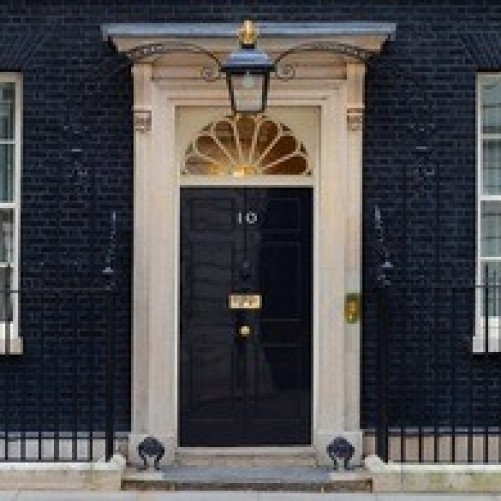Appeal Submitted: One Million Queen Sculpture Removal
09/05/2020
A list of our recent projects
09/07/2021The Town and Country Planning (Use Classes) (Amendment) (England) Regulations 2020 legislation represent the biggest changes to UK use classes in over 30 years.
Use Classes have been simplified in order to facilitate the change of use of properties. The current system dates back from the Use Classes Order 1987. Over the years, though, central government has tried to add some flexibility by creating various permitted development rights (PDR). These allow you to change from one use to another without planning permission, although councils could suspend these using Article 4 directions.
Legislation
Under the new legislation, the current classes are being dismissed. Instead, the authorities are rebranding many of the existing classes A1, A2, A3, B1, D1, and D2 into a new Use Class E.
This is good news for business owners as it means they won’t have to get planning permission to change the use of their building. This change should simplify the rental process for shops and other premises by broadening the pool of potential tenants. For the same reason, it should now be easier to sell shops. Planning permission remains necessary for any external structural changes.
Pubs and bars (previously A4), takeaways (A5), cinemas and live music venues (D2) are deemed as “Sui-Generis” classification. Meanwhile, pubs and cinemas, along with live music venues – which have temporary planning protection during the COVID-19 crisis – are now sui generis.
The new F1 and F2 classes are designed for “learning and non-residential institutions”. F1 incorporates half of the old D1 Use Class, and includes educational establishments, places of worship, libraries and museums. The F2 groups together meeting halls, swimming pools, playing fields and isolated village shops.
Changes in Permitted Development Rights and Local Authority Control
Permitted development rights have long supported this principle, but the 2020 changes now group a wide range of business types into a single category. This grouping should, in theory, make it easier to switch between classes.
There are some notable exceptions in this new legislation. Nail bars, beauty salons and betting shops all remain classed as sui generis. B2 (general industrial) and B8 (storage and distribution), along with housing (C) also remain unchanged.
This new move may not be totally welcomed by some local authorities as fundamentally, the new regulations mean that councils have less power via the planning system to control the type of businesses on the high street. This also affects their future planning, and what they can suggest in their local plans in developing their area over the next decade.
Please get in touch with us for a more detailed explanation or to assist you with any changes you are planning to make.
Summary of Changes:
Classes A1/2/3, B1 & D1/2 to be treated as Class E (a,b,c)
- Uses A4/5 are not covered by the new Class E and become defined as ‘Sui Generis’
- Uses B2 and B8 remain valid.
Class C remains unchanged by the amendments effective from 1 September 2020.
From 1 September 2020, Class D has been revoked.
- D1 is split out and replaced by the new Classes E(e-f) and F1
- D2 is split out and replaced by the new Classes E(d) and F2(c-d) as well as several newly defined ‘Sui Generis’ uses.
Introduced as of 1 September 2020, Class E brings new regulations.
In 11 parts, Class E more broadly covers uses previously defined in the revoked Classes A1/2/3, B1, D1(a-b) and ‘indoor sport’ from D2(e):
- E(a) Display or retail sale of goods, other than hot food
- E(b) Sale of food and drink for consumption (mostly) on the premises
- E(c) Provision of:
- E(c)(i) Financial services,
- E(c)(ii) Professional services (other than health or medical services), or
- E(c)(iii) Other appropriate services in a commercial, business or service locality
- E(d) Indoor sport, recreation or fitness (not involving motorised vehicles or firearms)
- E(e) Provision of medical or health services (except the use of premises attached to the residence of the consultant or practitioner)
- E(f) Creche, day nursery or day centre (not including a residential use)
- E(g) Uses which can be carried out in a residential area without detriment to its amenity:
- E(g)(i) Offices to carry out any operational or administrative functions,
- E(g)(ii) Research and development of products or processes
- E(g)(iii) Industrial processes
Class F (introduced from 1 September 2020)
In two main parts, Class F covers uses previously defined in the revoked classes D1, ‘outdoor sport’, ‘swimming pools’ and ‘skating rinks’ from D2(e), as well as newly defined local community uses.
- F1 Learning and non-residential institutions – Use (not including residential use) defined in 7 parts:
- F1(a) Provision of education
- F1(b) Display of works of art (otherwise than for sale or hire)
- F1(c) Museums
- F1(d) Public libraries or public reading rooms
- F1(e) Public halls or exhibition halls
- F1(f) Public worship or religious instruction (or in connection with such use)
- F1(g) Law courts
- F2 Local community – Use as defined in 4 parts:
- F2(a) Shops (mostly) selling essential goods, including food, where the shop’s premises do not exceed 280 square metres and there is no other such facility within 1000 metres
- F2(b) Halls or meeting places for the principal use of the local community
- F2(c) Areas or places for outdoor sport or recreation (not involving motorised vehicles or firearms)
- F2(d) Indoor or outdoor swimming pools or skating rinks
Sui Generis
‘Sui generis’ is a Latin term that, in this context, means ‘in a class of its own’.
Certain uses are specifically defined and excluded from classification by legislation, and therefore become ‘sui generis’. These are:
- theatres
- amusement arcades/centres or funfairs
- launderettes
- fuel stations
- hiring, selling and/or displaying motor vehicles
- taxi businesses
- scrap yards, or a yard for the storage/distribution of minerals and/or the breaking of motor vehicles
- ‘Alkali work’ (any work registerable under the Alkali, etc. Works Regulation Act 1906 (as amended))
- hostels (providing no significant element of care)
- waste disposal installations for the incineration, chemical treatment or landfill of hazardous waste
- retail warehouse clubs
- nightclubs
- casinos
- betting offices/shops
- pay day loan shops
- public houses, wine bars, or drinking establishments – from 1 September 2020, previously Class A4
- drinking establishments with expanded food provision – from 1 September 2020, previously Class A4
- hot food takeaways (for the sale of hot food where consumption of that food is mostly undertaken off the premises) – from 1 September 2020, previously Class A5
- venues for live music performance – newly defined as ‘Sui Generis’ use from 1 September 2020
- cinemas – from 1 September 2020, previously Class D2(a)
- concert halls – from 1 September 2020, previously Class D2(b)
- bingo halls – from 1 September 2020, previously Class D2(c)
- dance halls – from 1 September 2020, previously Class D2(d)
Other uses become ‘sui generis’ where they fall outside the defined limits of any other use class.
For example, C4 (Houses in multiple occupation) is limited to houses with no more than six residents. Therefore, houses in multiple occupation with more than six residents become a ‘sui generis’ use.
Source: https://www.planningportal.co.uk/info/200130/common_projects/9/change_of_use



